Faraway Places – Ireland: Exotic Landscapes in the Neutral Free State
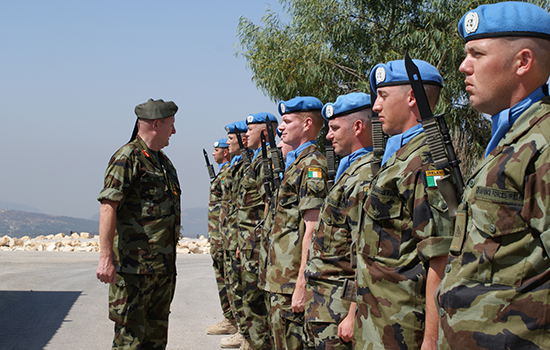
By Denis Bright
In a globalized world, there are great pressures on Irish neutrality. There is a parallel political ascendency for NATO in most European Countries.
Tensions between associations with the NATO and Irish national sovereignty are hardly new trends. How indeed can a country with 6.6 million people stand apart from an increasingly globalized and militarized world?
Ireland’s membership of the United Nations and the EU has over-ruled the possibilities of this isolation. Ireland is involved in UN peace-keeping and developmental agencies, often with similar military commitments by other NATO countries.
From Brussels, the EU has a great impact on Irish domestic and financial protocols. More importantly, Ireland is a big player in the Wall Street Financial System. It is a haven for tax avoidance with a corporation tax rate of 12.5 per cent for trading income and 25 per cent for non-trading income.
Ireland also has a political problem with Brexit. Some border controls may need to be re-established between the Republic and Northern Ireland.
Patrick Smyth in the Irish Times Online (23 June 2017) confirms the contemporary challenges to Irish Neutrality.
Prime Minister Leo Varadkar was asked by journalists if the time had come for a complete revision of the traditional concept of pragmatic Irish Neutrality as practised in war and peace since the last British troops were withdrawn from the Republic in 1938 when British administrative control of some Treaty Ports also ceased:
“No. Ireland’s position on neutrality is longstanding. We believe that by being a country that is neutral but not being part of any military alliance, that it makes us stronger in the world, that we’re more respected around the world particularly beyond this continent, because we aren’t members of NATO and we don’t take part in a military alliance, our focus is on other things, like development for example.
“Having said that, co-operation around security and defence is changing. The threats that we face in the world are less about wars between countries, and more about threats created by terrorism, by extremism, and by cyber-attacks for example.
“And those areas are not areas in which we should be neutral. We should be very much involved in working with European partners to prevent cyber-attacks, to manage migration and to stand against terrorism.”
WorldBeyondWar Online (22 January 2018) claims that such compromises with Irish Neutrality had strayed too far from the real intent of the Irish Constitution. At issue, was a staged encounter at Shannon Airport on 13 January 2018 between Vice President Pence and US troops on route to bases in the US Global Alliance.
Democracy Online (7 March 2005) notes that under the Presidency of George W. Bush, an average of 13,000 US troops a month were in transit through Shannon Airport on route to distant war zones.
In this context, five peace activists, including Ciarán O’Reilly of St. Mary’s Parish in South Brisbane, were arrested for breaking into compounds where US military planes were parked.
Yet NATO Online (21 March 2016) continues to talk-up closer relations between the US Global Alliance and Ireland under the current Fine Gael Coalition Government of Prime Minister Leo Varadkar. Ireland joined NATO’s Partnership for Peace (PfP) and became a member of the Euro-Atlantic Partnership Council in 1999.
After the storms generated by the Global Financial Crisis (GFC), the Irish electorate is very committed to new economic growth strategies.
Financial incentives like increased military transits through Shannon Airport are all positive factors for the Irish economy. The BREXIT initiative may increase ties to both the British economy and to the US Financial Hub in New York. Commitment to continue the momentum of Ireland’s economic growth is always a significant factor in controlling Irish opposition to closer association with NATO agendas.
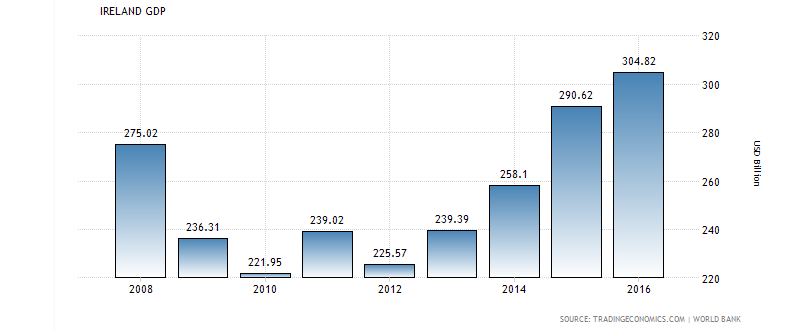
The Irish property market is booming and trend-lines for unemployment are improving with an unemployment rate of around 5 per cent possible in 2020 on the eve of the next national elections.
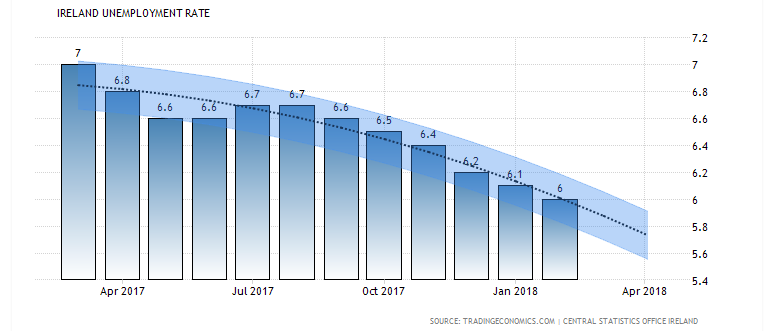
As three million tourists flock to Ireland each year, with a seasonal concentration in summer and autumn, the quest for traditional Irish populism has a stronger appeal with foreign visitors than within a more pragmatic Irish electorate.
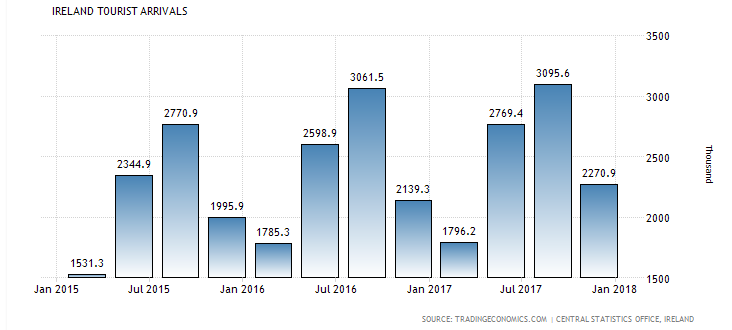
Attempts are relentless to woo Ireland into more formal association with NATO. The proposals are innocuously embedded into legitimate strategies for the management of security and terrorist challenges affecting airports, passenger ferries and cyber-security. Financial incentives are usually offered to Ireland by NATO.
The Irish tricolour is displayed on the NATO web-site (21 March 2016):
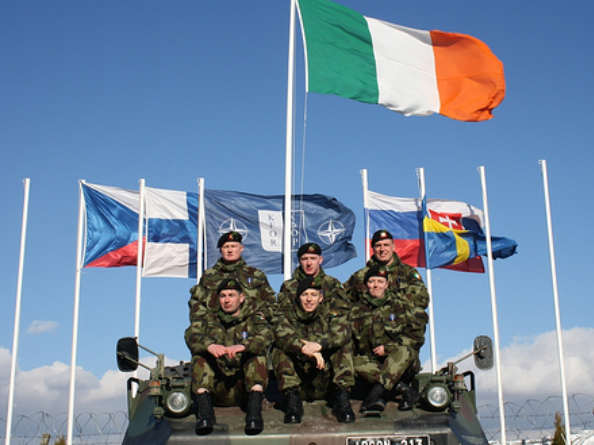
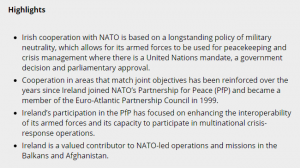
In Ireland and beyond, the slide towards dependency should be resisted by progressive leaders with a commitment to their national sovereignty.
Hopefully, this fashion trend towards dependency will not inhibit your search for another pint of Guinness this weekend at your local St. Patrick’s Day Parade for peace and frivolity in every land.
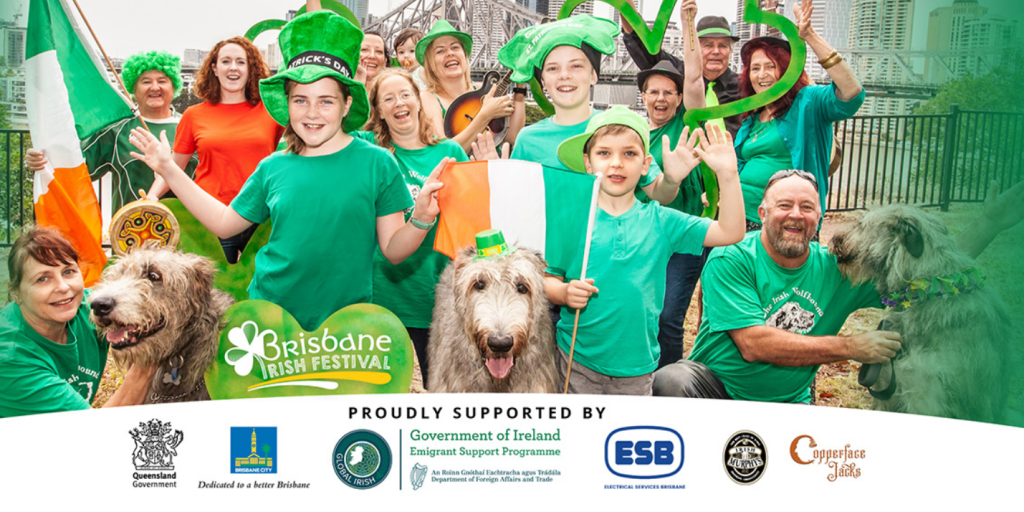
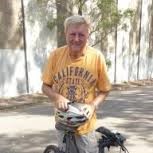 Denis Bright is a registered teacher and a member of the Media, Entertainment and Arts Alliance (MEAA). Denis has recent postgraduate qualifications in journalism, public policy and international relations. He is interested in advancing pragmatic public policies compatible with contemporary globalization.
Denis Bright is a registered teacher and a member of the Media, Entertainment and Arts Alliance (MEAA). Denis has recent postgraduate qualifications in journalism, public policy and international relations. He is interested in advancing pragmatic public policies compatible with contemporary globalization.









13 comments
Login here Register here-
Jaquix
-
Moya
-
Chris
-
John die
-
Charlie
-
James Robo
-
Tessa
-
Paul
-
Kyran
-
Stella
-
Lalnama
-
Denis Bright in Brisbane
-
UL@Limerick
Return to home pageIrish history is fascinating and I found this article most interesting. I wrote a book about my Irish grandfathers family and visited Ireland last year, so amazing to talk to people about politics.- very complicated subject to be sure, to be sure! Thanks for the article.
After a century of Domestic Troubles imposed by Britain’s division of Ireland in 1921 the Republic of Ireland needs to cherish its independence and neutrality.
Let’s join the parades around the world this weekend in solidarity.
A great case for keeping nukes out of Ireland but they still whizz past in submarine fleets. That’s why Ireland is strongly opposed to the existence of nuclear arsenals at the UN.
Interesting article, a neutral Ireland is at least one country the world does not have to fight with.
Ireland does not need to be pulled into taking sides , or it will lose its neutrality .
Interesting article . The world will be better with a neutral Ireland, hopefully this will not change and Ireland pulled into taking sides with powerful nations
Definitely no nukes for Ireland and Australia too!!!
Let’s extend neutrality to Australia, New Zealand and our neighbours who are largely showing us the way to a peaceful future.
Wow – really interesting article!
Thanks Denis. I didn’t know about Ireland’s position with NATO. The prime minister’s comments seem like a good approach. I like the focus on development.
I was talking to my brother the other night (he lives there) and ‘exotic’ is not the word he used. They were being battered by ‘The Beast’ weather event.
Without sounding like I’m ‘taking the piss’, there are vagaries about ‘Irish culture’ that defy explanation. The Irish population is a case in point. Of the 6.6mill, many of them have emigrated. If you have been following the upcoming vote on abortion, the yes campaign are trying to get people to return and vote.
https://www.theguardian.com/world/2018/mar/11/ireland-abortion-repeal-referendum-home-to-vote-pro-choice-campaign
If you look at the wiki for Ireland you will get the gist of the demographics.
The Irish free state was ‘neutral’ during WW2. They actually left their light’s on during the night. From the various relatives I’ve spoken to over the years, half say it was to make sure the German’s didn’t bomb them, the other half say it was to guide the German bombers to the North or East.
I’d always thought Ireland being neutral was a non event, as their air force was reputed to be a couple of Cessna’s, with hand launched fire crackers, a la Fizza. This came as a surprise;
https://en.wikipedia.org/wiki/Air_Corps_(Ireland)
Lear Jets? So I looked up their navy.
https://en.wikipedia.org/wiki/Naval_Service_(Ireland)
They have been busy in the Mediterranean for years, but not in the sense of military action as much as humanitarian aid. The best bit of news is that when I’m next talking to my sister, I can tell her there’s a boat named after her, a ‘class patrol vessel’. Róisín will be impressed.
The tax concessions the Irish government have given to multinational corporations to establish their EU base in Ireland are nothing short of ridiculous. Enticements such as the first ten years being tax free. Going back to the Tiger Economy of Ireland, it was a veritable house of cards. The subsequent boom and bust of property prices is testament to that.
The property prices now are only just starting to come good after the crash.
As for the border with the North, there are a lot of people who lived through 1986 and will not countenance another border. Ironically, given some of the other threads on this site, it was the women of northern Ireland that brought a semblance of peace, however troubled it was. There is a generation now that haven’t lived with the reality that things will be blown up. That will not be surrendered easily.
As to the nuclear non proliferation, it was ICAN that got the ball rolling.
http://time.com/4971956/nobel-peace-prize-2017-ican-why/
Ironically, an Australian founded group, whose winning of the Nobel Peace Prize has still not been acknowledged by the Australian government, is leading the way.
http://www.icanw.org/action/nobel-peace-prize-2017-2/
Ireland was one of the first signatories, but has not yet ratified the agreement. Australia is yet to sign.
http://www.icanw.org/status-of-the-treaty-on-the-prohibition-of-nuclear-weapons/
As an observation, the Irish culture is still maturing. It is just starting to separate church and state, the only reason for which that I can think of is that the church did do a lot of good during centuries of British oppression. We are only now understanding fully the price of the church’s good.
The Taoiseach, Mr Varadkar, is withstanding the usual political shenanigans and seems to be the right person to be seeing a difficult transition. The past presidents, Mary Robinson and Mary McAleese, are both significant players at the UN. The current president, Michael Higgins, seems a wily person who will always offer a considered opinion. It seems almost incongruous to note that the remnants of the IRA are currently embroiled in ‘gangs’ that make the recent gang wars in Melbourne look like Sunday school picnics.
You have to have an inkling of that history to understand why Ireland is averse to joining military gangs. Most of us have a very good understanding of war. And what it’s good for.
Absolutely nothing.
Thank you Mr Bright. Take care
Denis, thanks for your article on Ireland’s position of political neutrality. Unemployment trends for Ireland appear to be tracking well.
Couldn’t agree more with Kyran, most people want peace and are adverse to gangs no matter what disguise they are in
From RTE News Online, Dublin: 17 March 2018 President Trump’s Business Agenda in Ireland Advanced by Political Connections with PM Leo Varadkar on his Current US Visit
“Pressure is growing on the Taoiseach Leo Varadkar to clarify his role in a planning decision in Doonbeg, nearly four years ago.
Yesterday while at a St Patrick’s Day lunch on Capitol Hill, Mr Varadkar revealed he had contacted Clare County Council seeking information about planning for a wind farm, which was close to the then businessman Donald Trump’s golf course at Doonbeg.
Mr Trump objected to the construction of a nine-turbine wind farm proposed by Clare Coastal Wind Power.
Mr Varadkar, who was minister for tourism at the time, said he approached the local authority after Mr Trump had phoned him directly.”
Unlike this article, the Irish electorate is very inward looking. It seems to have taken to Leo Varadkar is the new public profile for Fine Gael which is a neoliberal party that is prepared to compromise Irish neutrality. The trends in last weekends Sunday Business Post Polll are not encouraging for Labour or Sinn Fein.
More on the Politics of Political Spin from this weekends news: http://www.thejournal.ie/taoiseach-scu-3930556-Mar2018/